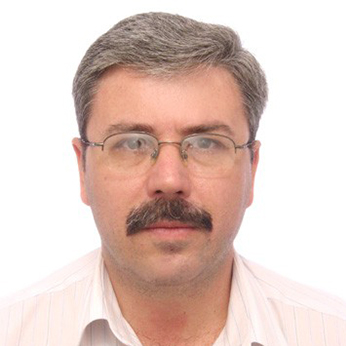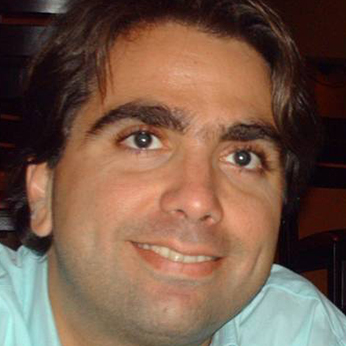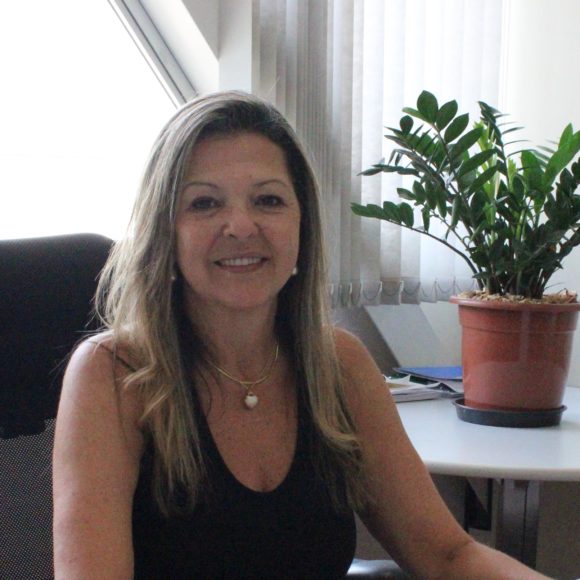Master’s degree
The Academic Masters is offered to professionals with a university degree. The course, with an expected duration of 24 months, aims to deepen the knowledge of candidates in a specific area of knowledge in Production Engineering.
Doctorate degree
The Doctorate is offered to those who have completed a stricto sensu master’s degree and wish to develop their research related to one or more lines of research offered by the postgraduate program in Production Engineering at EESC-USP.
Postdoctoral
The Postdoctoral at USP is an advanced research enhancement program under the supervision of an experienced researcher who serves as a professor in a graduate program.
Research lines
Processes and Operations Management
This line of research aims at the theoretical and applied study and development of Operational Research, which is a scientific approach that uses mathematical techniques in order to determine how to design, plan and operate a system, usually under conditions of scarce resources. In this context, linear or non-linear optimization techniques, the development of deterministic or stochastic models, single or multiobjective evaluation criteria, and heuristic and meta-heuristic solution models are included.
In particular, the line has as studies the development of the following research themes:
Optimization of production systems for problems of sizing and sequencing of production and distribution batches in logistic systems; Theoretical and/or applied study in production scheduling problems in environments with single machine, machine, parallel, flowshop, jobshop, openshop and others; Evolutionary computational models applied to finance for investment portfolio control problems and cash management policies; Machine learning and data science applications.
This line of research seeks to use innovative technologies to manufacture new products and improve existing ones within the context of Industry 4.0. Research in this line includes activities related to information technology, automation, dedicated and embedded software, sensing and monitoring of production, locally or through communication networks.
He currently develops research in Microcomponent Manufacturing, Texturing of Functional Surfaces, Additive Manufacturing for Metals, Automation and Intelligent Monitoring, and Manufacturing Sustainability, with a focus on increasing productivity, reducing energy consumption, inputs and waste.
The intense and constant scientific productivity over the years of existence of this line of research, whose researchers are CNPq Scholars, with significant international insertion is highlighted and favors joint projects and exchange of students with universities and research institutes in the United States, Canada, England , Germany, Belgium, among others.
In this line of research, knowledge and solutions are developed for the integrated and multidisciplinary management of the life cycle of goods and services, covering the areas of innovation and sustainability in organizations.
Innovation is understood as a set of processes that range from proactive action to identify user needs, market analysis and technology analysis to the introduction of innovative product-service systems, passing through the technology development process.
Concepts and tools for the management of all these processes are studied, always focusing on obtaining sustainable product-service systems, currently following the circular economy approach.
In this line of research, knowledge and solutions for performance management are developed, based on the concepts of sustainability/circular economy, incorporating 4.0 approaches and technologies, and using quantitative and qualitative tools in the following topics:
Dynamic collaborative network modeling (virtual organizations, civil construction consortia and MPC systems); Lean manufacturing (lean manufacturing, lean healthcare and lean office); Supply chain management and logistics (applied to multiple chains, dynamic chains, management models, sustainable models and health/hospitals); Supplier and supply chain performance management (decision support systems using multicriteria and word computing techniques); Performance analysis of production systems based on econometric techniques and Data Envelopment Analysis – DEA (companies, economic sectors, countries, among others); Organizational change management (strategy, stakeholders, organizational culture and leadership).
Economy, Organizations and Knowledge Management
This line of research works with organizational modeling and knowledge management, aiming to understand the main inherent strategic processes and develop new forms and structures of business and social business, emphasizing the transformation of business models through technology.
This better understanding helps us to train stakeholders and employees so that they can perform the tasks of leaders, managers and decision makers in the context of innovation, complexity and new paradigms.
The themes “People Management, Knowledge Management, Innovation Management and Entrepreneurship” address broad concepts that address the way people and work are led and managed.
This line of research aims to investigate these components of organizational behavior at three levels of analysis: the individual, the group and the organization. It is assumed that organizational relationships have fundamental influences on individual and group actions.
The research line deals with themes related to the Economy (Production Economics – Micro/Macro, Industrial Organization and Business Finance) that are little explored in Brazil and that have an approach whose analysis instruments are qualitative and quantitative.
Also, this line of research addresses topics such as:
Determinants and consequences of mergers and acquisitions and brand expansion processes;
Asset pricing, industry competitiveness analysis;
Strategy and corporate governance in emerging countries and family businesses;
Determinants and consequences of investment decisions in the micro and macroeconomic spheres;
Investment decisions in research and development (R&D);
Analysis of financial constraints;
Among other prominent themes in the literature on business economics, corporate finance, industrial organization and econometrics.
The Program in Numbers
Teachers
Walther Azzolini Junior, Professor Doutor
Aldo Roberto Ometto, Professor Associado
Daisy A. N. Rebelatto, Professora Associada
Internationalization
Disciplines
- Avanços em Processos Não-Tradicionais de Manufatura | SEP5850
- Conceitos e Práticas em Gestão da Cadeia de Suprimentos | SEP5833
- Desenvolvimento de Projetos de Engenharia para a Sustentabilidade e Economia Circular | SEP5815
- Economia Circular, Gestão e Engenharia do Ciclo de Vida | SEP5798
- Estratégia e Modelagem de Empresas para Inovação Colaborativa | SEP5838
- Formação do Pensamento Administrativo | SEP5751
- Fundamentos do Gerenciamento Ágil de Projetos | SEP5812
- Gestão da Mudança | SEP5835
- Gestão da Qualidade | SEP5753
- Gestão de Serviços | SEP5827
- Gestão Integrada da Inovação e Tecnologia | SEP5848
- Inovação e Sustentabilidade na Manufatura | SEP5837
- Inovação, Mudança Produtiva e Desenvolvimento Humano | SEP5847
- Integração das Estratégias de Recursos Humanos e de Produção | SEP5762
- Introdução à Análise Envoltória de Dados | SEP5830
- Manufatura Híbrida | SEP5849
- Manufatura por Processos Aditivos | SEP5824
- Metodologia de Pesquisa para Sistemas Sóciotécnicos | SEP5828
- Métodos Quantitativos em Economia e Finanças | SEP5839
- Modelagem de Empresas: Conceitos e Métodos | SEP5844
- Modelagem de Redes Dinâmicas | SEP5819
- Modelos de Excelência em Logística Integrada e a Gestão da Cadeia de Suprimentos | SEP5765
- Modelos de Negócio para Digitalização | SEP5754
- Preparação Pedagógica em Engenharia de Produção | SEP5823
- Simulação Computacional Aplicada à Gestão da Manufatura | SEP5841
- Técnicas de Sequenciamento e Programação de Operações em Máquinas | SEP5700
- Técnicas de Suporte à Decisão Aplicadas à Gestão de Desempenho de Cadeias de Suprimento | SEP5836
- Teoria e Prática de Indicadores Econômicos Aplicados à Engenharia de Produção | SEP5845
- Tópicos Avançados sobre Pesquisas Acadêmicas em Servitização | SEP5843
- Tópicos em Dados Longitudinais para Economia e Finanças | SEP5846
- Tópicos Especiais em Modelagem de Empresas sob a Ótica dos Sistemas Complexos | SEP5840
- Tópicos Especiais em Planejamento de Experimentos | SEP5842
- Tópicos Especiais em Sistemas Complexos e Gestão do Conhecimento | SEP5829







